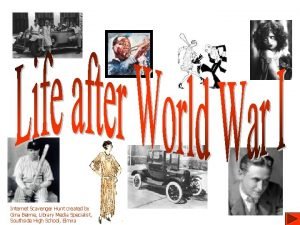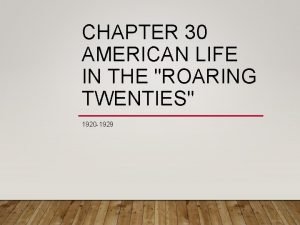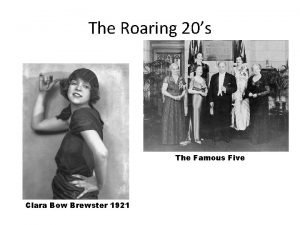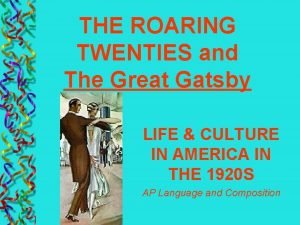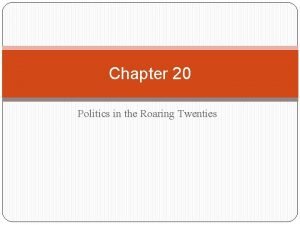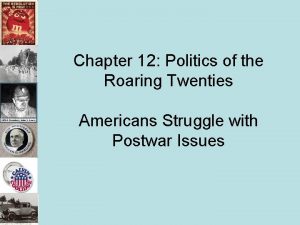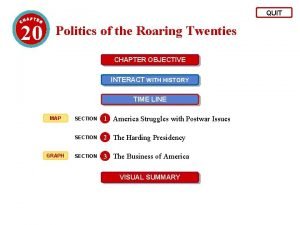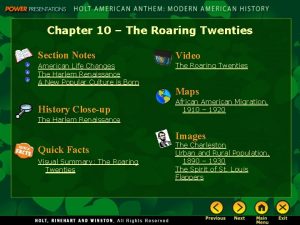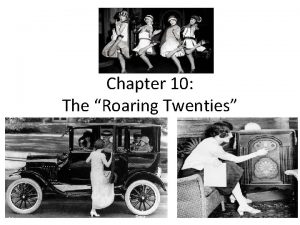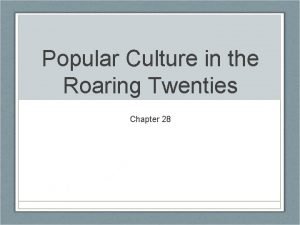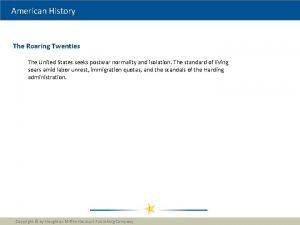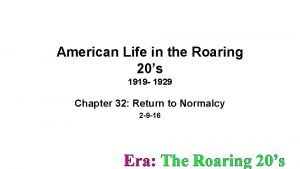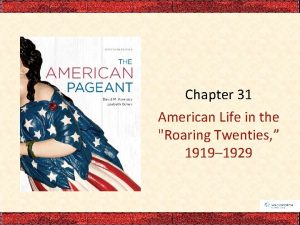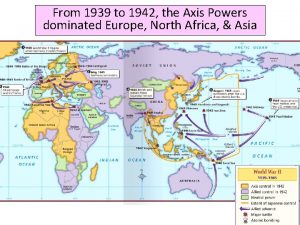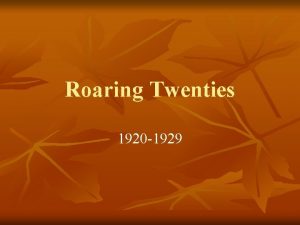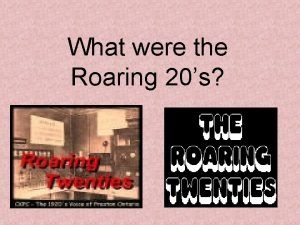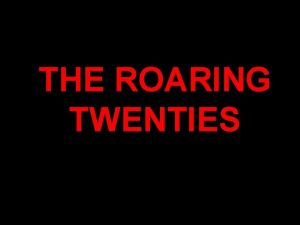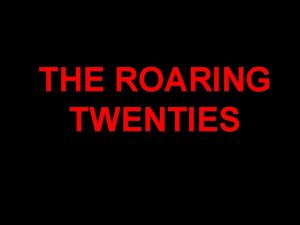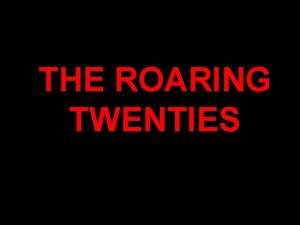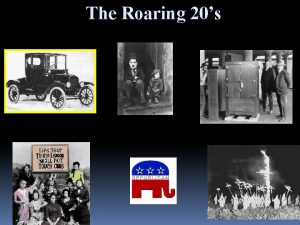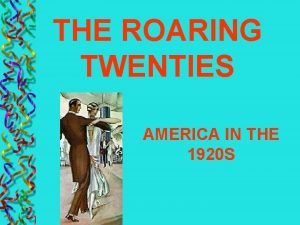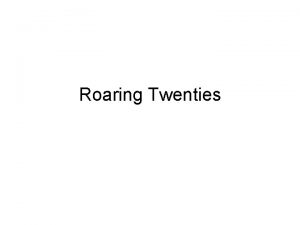1920 1939 Roaring Twenties This was a result


















- Slides: 18

1920 - 1939

‘Roaring Twenties’ • This was a result of the devastation of the First World War. • North America went through a period of massive rebuilding and modernisation. • The USA became the richest country in the world

Wall Street Crash - 1929 • The roaring Twenties ended with the crash. • The New York stock market was becoming unstable in 1929. • Millions of people tried to withdraw all their money at the same time (Black Thursday). • Banks all over the U. S collapsed because they had no more money to give.

• There is more ‘virtual’ money (in banks, bonds, internet banking and credit cards for example) then actual physical printed money. • If everyone in the world tried to withdraw their money today, the banks would collapse again as there would not be enough to go around. • In the Great Depression, a wheelbarrow full of money was worthless. The wheelbarrow was actually worth more.

The Great Depression • Because of the wall street crash thousands of professional jobs were lost. • Families lost everything including their homes • The only work many could find was agricultural work. • There were not enough of these jobs to go round and most of it was seasonal. • Whole families were constantly on the move.

• 50% of all children in America did not have enough food, water or shelter. • Thousands were forced to get food from soup kitchens • The Government felt that Americans had to et themselves out of trouble. They provided very little in the way of support.

The Dust Bowl

Farming and Food • Most food was produced in central America. • Over farming, pollution and a series of droughts destroyed most of the food growing areas in this region. • Many farms closed and this led to more unemployment and severe lack of food. • Many people sought farm work in California which had been unaffected by the dust bowl.


Ranch Houses • Thousands of recently unemployed people flocked to California to find any work to feed themselves and their families. • The only work available was agricultural. • Because of the huge numbers looking for work, farmers could pay low wages and treat workers unfairly. • If you didn’t like what was going on, move on.


Working Conditions • Workers were paid very little and generally the work was very dangerous. • You had to work 6 days a week and between 12 -15 hours a day. • Ranch owners would reduce pay for accommodation and food. • If you got ill or too old you would be sacked.

Racism

• Black people had been bought to America as slaves. They were seen as less then human. • Even though they were set free, many white Americans disliked black people. • The depression made these feelings even worse (people needed someone to blame) and many black people were persecuted.

The Scottsboro Boys - 1931 • Nine black boys were accused of raping two white women (both known prostitutes) on a train. • Even after the second trial, all the men were found guilty and sentenced to life imprisonment. • Eight of the nine were sentenced to death after only a few weeks of trials. • After a FOURTH trial in 1936, four men were found innocent and released. The other four were still found guilty. • The prosecution lawyer famously said during the trial. “Guilty or not, let’s get rid of these niggers”. • The Supreme court ruled against the conviction and called for a second trial. • On of the white women who said she had been raped told the courts she had made the story up. • Four more men were finally released in 1940. • The final man, Andy Wright, was not released until 1950. • They were only pardoned of their crimes in 1976. By then, there was only one surviving member of the original nine.


The Role of Women

• Women were treated as second class citizens. • They could not vote, very few were allowed to work and in some cases had little choice in who they should marry. • Women were seen by some men as only good for sex. • A few men treated women like their own property.
 The roaring twenties canada
The roaring twenties canada Roaring twenties scavenger hunt answers
Roaring twenties scavenger hunt answers Chapter 30 american life in the roaring twenties
Chapter 30 american life in the roaring twenties Roaring twenties acrostic poem
Roaring twenties acrostic poem Roaring twenties great gatsby
Roaring twenties great gatsby Chapter 20 section 2 the harding presidency
Chapter 20 section 2 the harding presidency Chapter 12 politics of the roaring twenties
Chapter 12 politics of the roaring twenties Chapter 20 politics of the roaring twenties answer key
Chapter 20 politics of the roaring twenties answer key Chapter 20 politics of the roaring twenties
Chapter 20 politics of the roaring twenties Chapter 10 the roaring twenties
Chapter 10 the roaring twenties Chapter 10 the roaring twenties
Chapter 10 the roaring twenties Chapter 28 popular culture in the roaring twenties
Chapter 28 popular culture in the roaring twenties The roaring twenties lesson 3 changing ways of life
The roaring twenties lesson 3 changing ways of life Roaring twenties acrostic poem
Roaring twenties acrostic poem Chapter 31 american life in the roaring twenties
Chapter 31 american life in the roaring twenties Roaring 20s were characterized by
Roaring 20s were characterized by What happened on august 23 1939
What happened on august 23 1939 Lili marleen 1939
Lili marleen 1939 Who dominated europe, north africa and asia from 1939-1942?
Who dominated europe, north africa and asia from 1939-1942?

